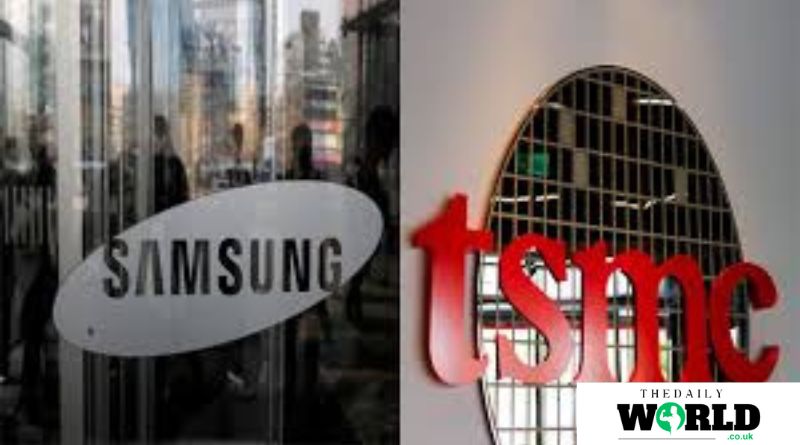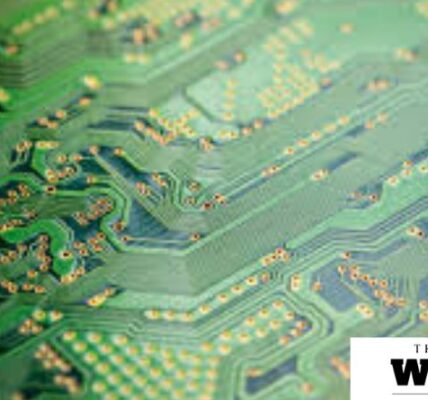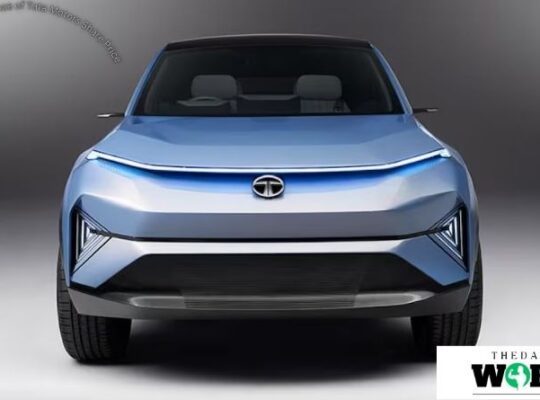Chip Giants TSMC and Samsung Consider Expanding to UAEIn recent years, the global semiconductor industry has been undergoing a transformative shift, driven by various factors such as the escalating demand for advanced technologies, geopolitical tensions, and the need for supply chain diversification. Among the prominent players in this industry, Taiwan Semiconductor Manufacturing Company (TSMC) and Samsung Electronics are exploring new growth avenues, and the United Arab Emirates (UAE) has emerged as a potential site for expansion. The interest of these chip giants in expanding their operations to the UAE marks a significant development, not only for the companies themselves but also for the global tech ecosystem.
The potential move to the UAE reflects broader trends in the semiconductor industry, including the growing importance of the Middle East in global supply chains and the strategic imperatives of companies looking to reduce reliance on specific regions. As TSMC and Samsung weigh their options, this article will delve into the factors influencing their decision, the potential benefits for both the companies and the UAE, and the challenges they might face.
The Semiconductor Industry’s Expanding Horizons
The semiconductor industry, worth more than half a trillion dollars, is the backbone of modern technology. From smartphones to cars, from healthcare devices to AI-powered systems, semiconductors are at the heart of most technological innovations. However, the industry’s complex supply chain has faced significant disruptions in recent years, particularly during the COVID-19 pandemic, which exposed vulnerabilities in global manufacturing and logistics.
Additionally, geopolitical tensions, especially between the United States and China, have prompted companies to rethink their reliance on particular regions for manufacturing and distribution. In this context, TSMC and Samsung, the two largest semiconductor foundries in the world, are exploring new regions for their production capabilities.
While Taiwan and South Korea remain the primary hubs for semiconductor manufacturing, there is growing recognition of the need for supply chain diversification. Enter the UAE, a country that has, in recent years, positioned itself as a global business hub, offering a stable political climate, cutting-edge infrastructure, and a favorable investment environment.
Why the UAE? Strategic Advantages for Chip Giants
One might wonder why a nation better known for its oil reserves and financial markets is being considered by chip giants like TSMC and Samsung as a potential semiconductor manufacturing site. The UAE offers a range of advantages that make it a compelling choice for these technology leaders:
Geopolitical Neutrality and Stability:
Unlike some regions of the world that are vulnerable to geopolitical strife, the UAE has maintained a stance of neutrality and political stability. This factor is crucial for companies like TSMC and Samsung, which are wary of potential disruptions to their manufacturing and supply chains due to political instability.
World-Class Infrastructure:
The UAE has invested heavily in creating state-of-the-art infrastructure. Whether it’s cutting-edge data centers, ultra-modern industrial parks, or high-speed connectivity, the country is ready to support advanced technology industries. Dubai and Abu Dhabi, in particular, have been at the forefront of technological innovation, offering TSMC and Samsung a ready-made ecosystem.
Strategic Location:
The UAE’s location makes it an ideal hub for global trade. Situated at the crossroads of Asia, Europe, and Africa, the country offers convenient access to key markets. For TSMC and Samsung, expanding to the UAE could enhance their ability to supply semiconductor products to a diverse range of markets while reducing dependency on specific regions.
Favorable Business Environment:
The UAE is renowned for its business-friendly regulations, including low taxes and incentives for foreign direct investment (FDI). The Emirates’ free zones provide foreign companies with 100% ownership, making it easier for TSMC and Samsung to establish a presence without needing local partnerships. Additionally, the government’s proactive approach in fostering innovation and attracting high-tech industries adds further appeal.
Supply Chain Diversification: A Pressing Need
Both TSMC and Samsung have been evaluating ways to diversify their supply chains in light of growing uncertainties around the globe. The global chip shortage of recent years highlighted the dangers of over-reliance on any single region or facility. With the rise of protectionist policies, economic sanctions, and trade restrictions, maintaining a flexible and diversified production network has become a strategic imperative for these chip giants.
For TSMC, which produces chips for industry leaders like Apple, Qualcomm, and AMD, diversification is particularly crucial. The majority of its manufacturing operations are concentrated in Taiwan, a region that faces increasing geopolitical risks due to tensions with China. Similarly, Samsung, a leading producer of memory chips and foundry services, has also been exploring alternative manufacturing locations to reduce reliance on South Korea.
The UAE offers a unique opportunity for these companies to mitigate risk by establishing manufacturing operations in a politically neutral, stable, and strategically located country. By doing so, TSMC and Samsung would not only protect their supply chains from potential geopolitical disruptions but also position themselves to meet the growing demand for semiconductors globally.
Opportunities for the UAE
The UAE’s potential to become a key player in the global semiconductor industry holds significant implications for the country’s economy and technological advancement. If TSMC and Samsung move forward with their plans, the UAE stands to benefit in several key areas:
Economic Diversification:
The UAE has been actively pursuing an economic diversification strategy to reduce its reliance on oil and gas revenues. A move by chip giants to establish semiconductor manufacturing facilities in the country would contribute significantly to this effort. The semiconductor industry is capital-intensive, creating high-paying jobs and stimulating economic growth.
Tech Ecosystem Development:
The presence of major semiconductor companies like TSMC and Samsung could catalyze the development of a broader tech ecosystem in the UAE. This could attract startups, research and development centers, and other high-tech industries, fostering innovation and positioning the UAE as a global technology hub.
Talent Development:
The semiconductor industry requires a highly skilled workforce. The establishment of manufacturing plants by chip giants would likely spur investments in education and training programs aimed at developing local talent. Over time, this could lead to the UAE becoming a regional leader in semiconductor engineering and related fields.
Challenges and Considerations
While the potential for TSMC and Samsung to expand into the UAE is promising, it is not without challenges. Semiconductor manufacturing is an incredibly complex process that requires specialized infrastructure, a skilled workforce, and a stable supply of raw materials. While the UAE excels in infrastructure, developing a semiconductor manufacturing ecosystem from scratch could take time and significant investment.
Moreover, the semiconductor industry is highly competitive, and TSMC and Samsung will need to evaluate whether the UAE can offer long-term cost advantages compared to other regions. Another consideration is the need for water and energy—two critical resources for semiconductor fabrication. Although the UAE has abundant energy reserves, water scarcity in the region could pose a challenge unless innovative solutions such as water recycling are implemented.
Additionally, while the UAE’s neutral geopolitical stance is a strength, the global semiconductor supply chain is closely intertwined with international trade and technology regulations. Navigating this landscape will require careful planning and strategic alignment with global industry standards.
Conclusion
As TSMC and Samsung consider expanding their operations to the UAE, it’s clear that both the companies and the host country stand to benefit significantly from this partnership. The UAE’s unique combination of strategic location, infrastructure, and favorable business environment makes it an attractive destination for chip giants looking to diversify their supply chains.
However, the road ahead is not without challenges. Both companies will need to carefully evaluate the long-term feasibility of such an expansion, considering factors such as costs, resource availability, and the development of local talent. If successful, this move could herald a new era for both the global semiconductor industry and the UAE’s role in the tech ecosystem, positioning the country as a critical player in the future of semiconductor manufacturing.
Read also: check













